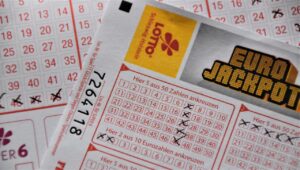
Written by R. A. Stewart
There are some things which you should never borrow money for because they are considered to be bad debt. The reason why they are considered to be bad debt is that they do increase your wealth but rather decrease it. The value of the item which has been purchased with borrowed money decreases over time.
Another thing which you should not borrow money for is risky investments which may or may not make you rich but also have the potential to send you to the poor house if the value of the investment plummets. Purchasing crypto currency is a classic example.
Here is a list of items you should never borrow money for.
- Cryptocurrency
Only discretionary spending money should be used for purchasing cryptocurrency because of its volatile nature and that nobody really knows what the future holds for crypto. The problem with borrowing to invest is that the liability (the loan) is sometimes more than the value of the investment. This occurrence is on the cards if you borrow to purchase Bitcoin and then the price of Bitcoin crashes.
It is exactly what happened to a lot of investors after the 1987 sharemarket crash. One man in our town borrowed money for shares using the equity in his home and when the market crashed in 1987 he was left with a debt.
- A wedding
A wedding is something you should never borrow money for. If a couple cannot even afford to pay for their own wedding you have to question whether they can afford to get married at all. A debt is a bad start to a married life that couples can do without.
- An overseas holiday
This is just dumb debt! Taking a holiday with someone else’s money is just irresponsible. There is nothing to show for the money apart from a debt which will be made to get ahead.

- A wedding ring
Another thing which is a no go area for borrowed money. If a person cannot even save for a wedding ring then getting married is not a wise decision. If the recipient of the ring expects something expensive then you have to question her motives. This is something that needs to be discussed between the families involved.
- Gifts
Thousands of people go into debt at Christmas time and most of it is spent on buying gifts for others. Advertisers encourage people to spend, spend, and spend more money and very often it is borrowed money that is being spent. No one should be pressured into spending money in this way or anything else for that matter. If you are then you can always plead poverty to your family.
- A new car
Borrowing for a new car is a complete no no because once you take possession of the car its value has dropped considerably and the vehicle is worth less than the amount owing on it. This is called “Dumb Debt.” If you cannot even save for a vehicle then you have to ask yourself this question, “Can I afford to run a vehicle?” The costs of keeping one on the road will drain you of your finances like nothing else will.
- Electronics
This is a complete No No as far as borrowing money for. Electronics such as TV sets, radios, smartphones and the like are stuff that you only buy with your discretionary spending money. Follow this rule, “If you don’t have the money you don’t buy it.”

- Hobbies
This is something you only do with your own money, not someone else’s money. Some hobbies can pay for themselves, such as stamp collecting. If you are able to swap with other collectors or even sell some surplus stock it can at least be self funding. Other hobbies can cost you an arm and a leg and be a hindrance to your financial goals.
- Vet bills
Keeping pets is not cheap and becoming too attached to them can be costly. Many people have spent a fortune on vet bills for their cat or dog when the sensible thing to do is to have it put down.

“If you don’t have the money you don’t buy it” is a good rule to live by. It is called “Living within your means.”
About this article: You may use this article as content for your blog/website or ebook. Feel free to drop me a message and give me other things which you should never borrow money for. Read my other articles on: www.robertastewart.com
The Benefits of Having a Travel Card
A dedicated travel card makes trips smoother and more secure. Unlike regular debit cards, travel cards often offer competitive exchange rates, low foreign transaction fees, and multi-currency support—saving you money on conversions.
If lost or stolen, travel cards can be frozen instantly via an app, protecting your funds without affecting your main bank account. Many also provide emergency cash replacement and 24/7 support.
Preloaded with a set budget, travel cards help control spending and avoid overspending. Some even offer rewards or insurance perks. For worry-free travel, a travel card is a smart financial companion.






















